Table of content
We understand the importance of CGMS for individuals with diabetes. So, we are providing solutions to the difficulties that you may face. Whether you’re a Dexcom G7 user suffering technical interruptions or someone considering this device. This guide will benefit you by keeping your glucose monitoring continuous by effective Dexcom G7 troubleshooting. Now, let’s explore each of these troubleshooting areas to confirm that you can make the utmost of your Dexcom G7 CGM system without stoppage.
Understand the importance of troubleshooting
The Dexcom G7 CGMs system is a valued tool for the management of diabetes. It guides real-time glucose data, which aids individuals in making up-to-date decisions about their actions. Still, like any electronic device, the Dexcom G7 can face problems repeatedly. These problems can disturb the dynamic flow of glucose data and potentially disturb your diabetes management.
In this Dexcom G7 troubleshooting guide, we will report mutual problems that users may experience with the Dexcom G7 system. We will also offer step-by-step solutions to resolve them quickly. Whether you’re new to the Dexcom G7 or an experienced user, this guide is designed to ensure your CGM understanding remains hassle-free and smooth.
Dexcom G7 Troubleshooting: How to Fix Properly
Here are the most common Dexcom G7 problems that are mostly faced by users. We study that deeply and give accurate solutions based on the experiences.
1. Ensuring proper sensor placement
One of the serious factors for correct glucose monitoring with the Dexcom G7 is suitable sensor placement. Inappropriate sensor placement may cause incorrect readings or sensor errors in Dexcom G7.
Sensor Placement Tips
Follow the manufacturer’s instructions for sensor placement.
Clean the insertion site with an alcohol pad and let it dry before inserting the sensor.
Ensure the sensor adhesive sticks firmly to the skin.
Skin Preparation
Skin prep! Skin prep means everything. If your sensor is just falling off an hour in, only lasts a couple of days, or falls off after exercise, the problem is likely skin prep. Some things:
2. Pairing with Your Smart Device
To couple your Dexcom G7 with a well-matched smart device, it is vital to get real-time glucose data on your phone. Follow these steps for a better solution
Solution: You need to check whether your smartphone is well-matched with the Dexcom G7 app. Confirm that Bluetooth is empowered on both your CGM transmitter and your phone. If you encounter problems during the pairing process, check the app’s troubleshooting section for specific instructions.
3. Dexcom G7 Signal loss Troubleshooting
Signal loss or weak connections between the sensor and the transmitter can disrupt glucose monitoring. Here’s how to address these Dexcom G7 issues:
Solution: Don’t use ultra moisturizing soaps, they diminish the adhesive.
Shower before inserting your sensor, exfoliate the site well. Once you leave, dry off and rub your skin with alcohol wipes. The benefit of this is that it removes skin oils and allows the Dexcom to adhere to your skin.Solution: Ensure your Dexcom G7 transmitter is firmly snapped into the sensor. Ensure that there are no problems or interference between your your smart device and transmitter. For Dexcom G7 signal loss troubleshooting, consider changing the transmitter or consult Dexcom support if this issue continues.
4. Sensor Errors
Sensor insertion problems
Occasionally, sensor insertion can be challenging, leading to uneasiness or sensor errors. Here is the solution that you can follow
Solution: When inserting the sensor, follow the provided instructions carefully. Choose a different insertion site if you’ve encountered difficulties in the past. If you continue to face issues, reach out to Dexcom customer support for assistance.
Sensor not starting
If your sensor does not start or initiate properly, it can be frustrating. Sometimes, you face Dexcom G7 sensor failure problems. Here’s how to solve this problem:
Solution: Make sure that you have started the sensor properly using the Dexcom G7 app. Install your g7. Right when you do, press down on it for ten seconds. This makes the filament more secure. This is a factor in it not falling right out. Also, rub the adhesive on the G7 itself. The heat from you rubbing it activates and strengthens the adhesive. If the sensor does not initiate within the expected time frame, consult the app for guidance on restarting the sensor or contact Dexcom support.
Use adhesive patch
Use the required adhesive patch, making sure to spend some time rubbing it in. Again, heat activates the adhesive.
We don’t want to risk any potential issues, so we recommend an adhesive patch from the CGM brand, which does not cause any problems. If you want to get this adhesive patch, visit our website at https://cgmmonitors.com/product/original-universal-adhesive-patches/
Frequent sensor errors
Frequent sensor errors can disrupt your glucose monitoring routine. Here’s how to address this issue:
Solution: Calibrate your sensor as instructed by the Dexcom G7 app. If errors persist, consider replacing the sensor. Regular sensor errors may show a sensor that has reached the end of its working life.
5. Imprecise Readings
Calibration challenges
Calibration is important for precise glucose readings. If you’re suffering calibration difficulties, you need to follow these steps:
Solution: Adjust your Dexcom G7 sensor when incited by the app. Ensure that you use accurate fingerstick readings for calibration. If your Dexcom G7 is not accurate, consult the app’s calibration troubleshooting section.
Interference and environmental factors
Conservational factors, such as electromagnetic interference or risky temperatures, can influence sensor correctness. Here’s what you should do:
Solution: Be conscious of your surroundings and evade situations where interference or dangerous conditions may disturb your sensor’s performance. Stay within the recommended temperature range for the Dexcom G7 system.
Sensor age and performance
As sensors age, their performance may decline. Here’s how to address accuracy issues due to sensor age:
Solution: Keep track of your sensor’s age and replace it as recommended by Dexcom. Aging sensors may provide less accurate readings, and timely replacement can help maintain accuracy.
6. Alerts and Notifications
Configuring alerts
Organising alert settings on your Dexcom G7 is important to remain up-to-date about your glucose levels. If you’re having a problem setting up alerts, follow these steps:
Solution: Set the access of the Dexcom G7 app and organize it according to your preferences. If you encounter difficulties, see the app’s user manual or contact Dexcom support.
Troubleshooting alarm notifications
If alarm notifications are not working as expected, it can be concerning. The solution to this problem is discussed below
Solution: Check your smartphone’s settings to confirm that the Dexcom G7 app is permitted to show notifications. Moreover, validate that the app is running in the background and linked to your sensor.
7. Transmitter problems
Transmitter battery life
The transmitter’s battery life is important for continuous glucose monitoring. If you’re facing battery life problems, here’s a solution that you can do:
Solution: Screen your transmitter’s battery rank through the app. Replace the transmitter when the battery is low or as recommended by Dexcom. Regularly charging the transmitter can help extend its life.
Signal loss with the transmitter
Signal loss between the transmitter and your smart device can disrupt data transmission. Here’s how to address this issue:
Solution: Ensure that your transmitter is securely attached to the sensor. Keep your smart device within the recommended range for signal strength. If signal loss persists, consider changing the transmitter.
Changing the transmitter
When there is a need to change your transmitter, follow these simple steps for a smooth change:
Solution: See the manufacturer’s strategies for varying the transmitter. Follow the directions carefully to ensure an effective replacement process.
8. Data sync and app issues
App compatibility
Confirm that the Dexcom G7 app and smartphone are well-matched for continuous data sync. For this problem, you need to follow the solution which is discussed below
Solution: Check for app updates repeatedly to confirm compatibility with your smartphone’s operating system. If compatibility issues persist, consider reaching out to Dexcom support.
Syncing problems
If you face difficulties with data syncing between the app and sensor, follow these steps:
Solution: Confirm that your smartphone’s Bluetooth is allowed and that it’s near the transmitter. Check for hindrances or nosiness that might hinder data transfer. Restart both your smartphone and the Dexcom G7 app if syncing problems persist.
App crashes
App crashes can be frustrating, but there are ways to address them:
Solution: Update the Dexcom G7 app to the latest version. If crashes continue, try reinstalling the app. Ensure that your smartphone has enough available storage space for smooth app operation.
9. Battery and charging
Battery life optimisation
To ensure your Dexcom G7 remains operational, it’s essential to optimise its battery life:
Solution: Keep the device charged regularly, following the manufacturer’s recommendations. Invest in a reliable charging cable and adapter to prevent charging issues.
Charging concerns
If you face problems with charging your Dexcom G7 device, you can solve this issue by seeing the following solution
Solution: Review the charging port for any wreckages or impairment. Check that the charger is firmly linked to both the device and the power source. If charging problems continue, contact Dexcom customer support.
Best CGM Alternatives When Facing Dexcom G7 Problems
Apart from Dexcom G7, numerous CGM systems are available in the market. You can choose the best one that suits you if your G7 system is continuously troubling you. Freestyle Libre 3Plus has a plus point, if we talk about Dexcom G7 vs. Libre 3 plus comparison because libre 3 plus has 15 days of weartime. Numerous users mention that if you buy Freestyle Libre 3 Plus sensor, you can endlessly monitor your glucose level without any trouble.
Conclusion
The Dexcom G7 is the main tool for managing diabetes. Still, irregular Dexcom G7 troubleshooting may be essential to ensure its continuous functionality. By following the solutions provided in this guide, you can address common issues and maintain accurate glucose monitoring.
Remember that timely sensor replacement, proper calibration, and device maintenance are essential for a seamless Dexcom G7 experience. If you meet determined difficulties that cannot be resolved using this guide, do not hesitate to contact Dexcom’s customer support for expert support. Our purpose is to help you achieve optimal diabetes management through reliable glucose monitoring, and we are here to support you at every stage of the way.
Frequently Asked Question
How can I ensure accurate sensor placement for my Dexcom G7?
Ensure proper sensor placement by following the manufacturer’s guidelines, cleaning the insertion site, and ensuring firm adhesive attachment.
How can I address signal loss issues with my Dexcom G7?
Securely snap the transmitter into the sensor, eliminate obstacles, and consider replacing the transmitter if problems persist.
What should I do if I encounter sensor insertion problems or discomfort?
Follow the provided instructions, choose a different insertion site if needed, and contact Dexcom customer support if issues continue.
What can I do to ensure accurate glucose readings with my Dexcom G7?
Calibrate as prompted by the app and be mindful of environmental factors that can affect sensor accuracy.
How can I troubleshoot issues with Dexcom G7 alerts and notifications?
Configure alert settings in the app, check notification settings on your smartphone and ensure the app is running and connected to your sensor.

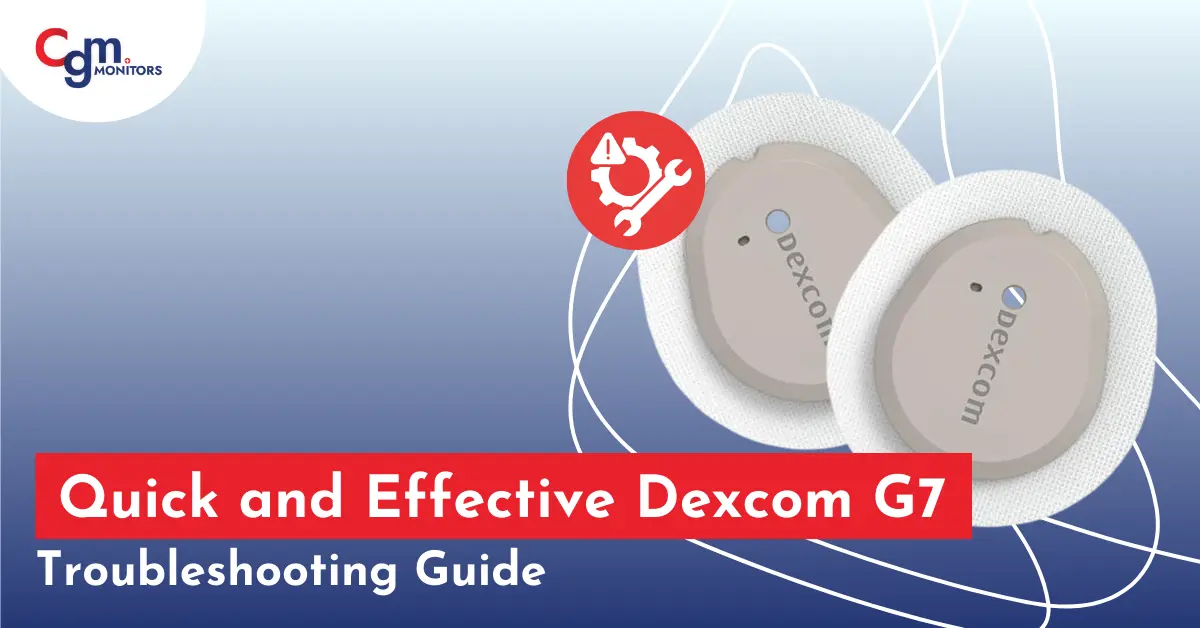

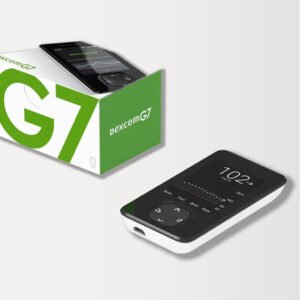
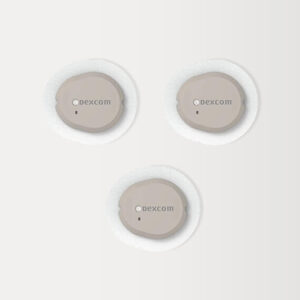



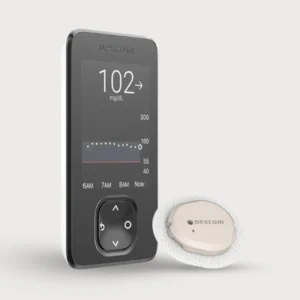
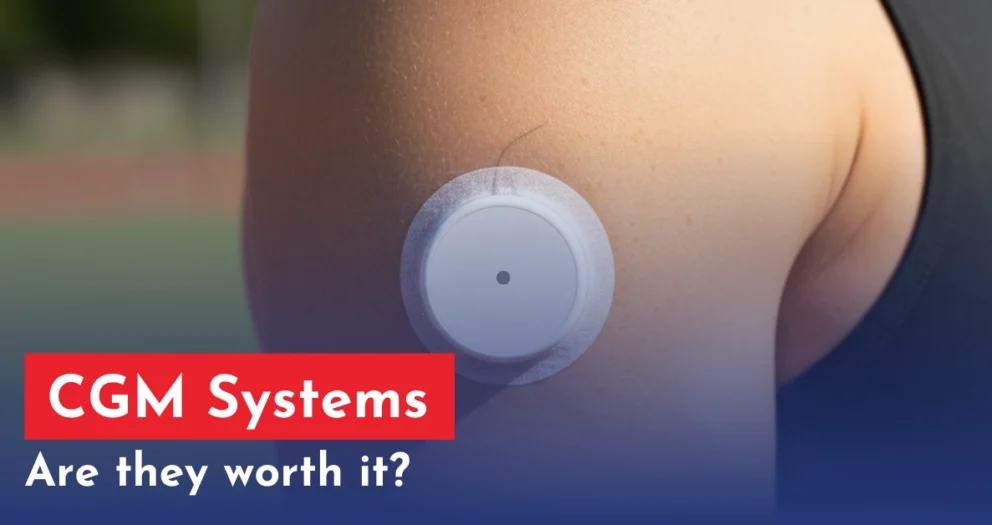


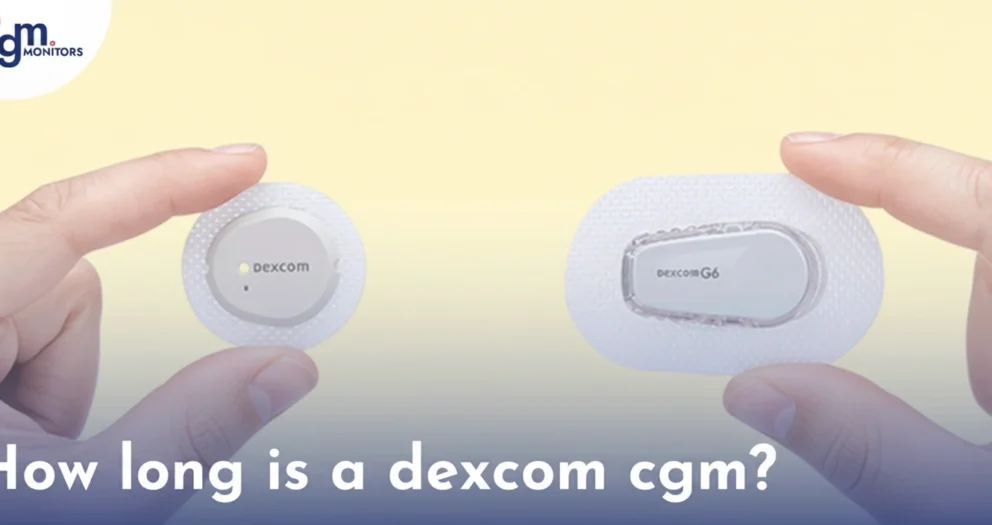
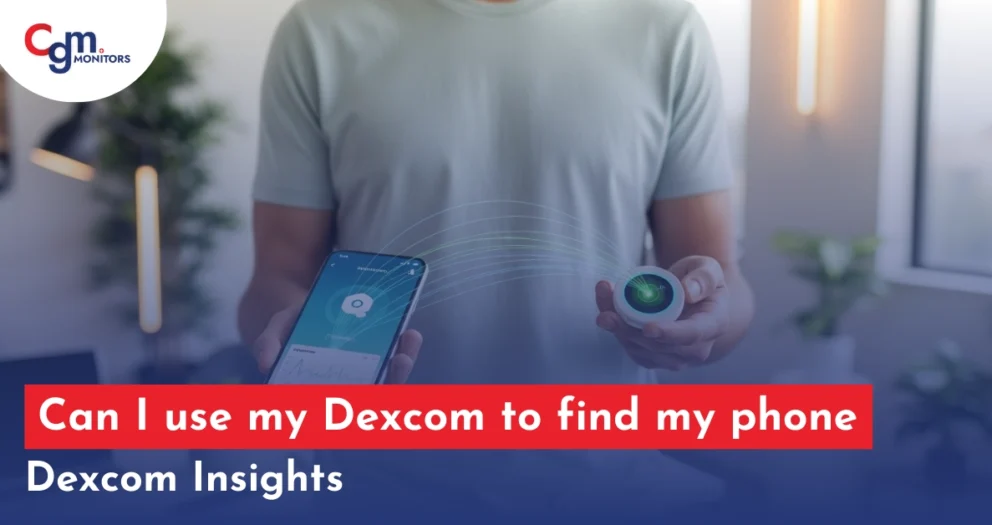
I get an error message that says No Alerts. Brief Sensor Issue. It says to wait up to 3 hours and it will usually fix itself. This happened with my last 2 sensors. It will “fix itself” temporarily then I start getting low glucose alerts, I calibrate, then shortly after that I get the Brief Sensor Issue again. Very frustrating! It is now 3:40 AM and I still haven’t been to bed because I am having to deal with this:(
Hello Patti. Sorry to hear about any inconvenience you may have experienced.
You are requested to use a BG meter in such cases and if the issue persists or arises repeatedly, contact technical support (in the app, go to Profile > Contact) for further troubleshooting.